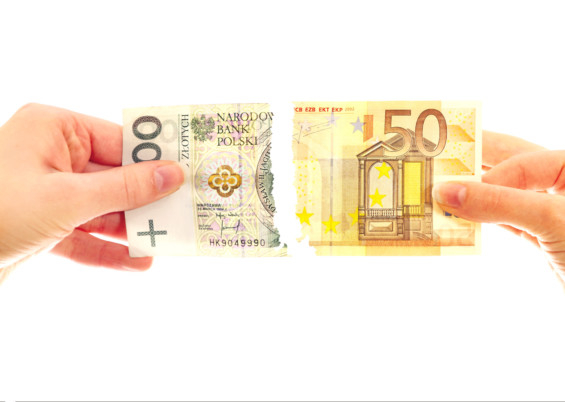
Adopting the euro is far from a straightforward move for Poland. Though it is obliged under EU treaties to adopt the currency, opinion in the country is divided about whether it’s a wise move to climb aboard a ship that appeared to be sinking not so long ago.
Even though the central European nation managed to avoid the worst effects of the Eurozone crisis thanks to its independent currency, the złoty, Poland’s leaders are heavily in favour of adopting the euro after the national elections next year.
But with a recent GfK poll showing that 76 per cent of Poles are opposed to having their fiscal policies tied to decisions made in Brussels, there’s a case being made that Poland just needs more time to adjust to the idea.
Prof. Adam Krzymowski, Poland’s Ambassador to the UAE, tells GN Focus that joining the Eurozone is not a matter of if but when. “The Polish people decided to join the EU in 2003. Through this decision, they committed to join the Eurozone when they are ready.
“Poland is focusing on making this objective feasible by means of the current euro adoption strategy, which encompasses meeting the convergence criteria in a sustainable manner.”
Pros and cons
There are arguments for and against the move. For instance, Elliot Hentov, Director of Sovereign Ratings and International Public Finance, Standard and Poor’s, tells GN Focus: “[Poland] would have suffered if it didn’t have the złoty.”
Moreover, embracing the single currency would mean that Poland would lose autonomy over its fiscal policy and be bound to the common interest rate set by the European Central Bank.
But pro-euro thinkers believe that the advantages offset the pitfalls. Centralised transaction costs reduce the risk of losing fiscal clout through currency exchange, there’s greater transparency in trading networks, and inward investments are safeguarded.
For Poland, though, it’s about timing, says Hentov. “Joining the euro is more a question of the stage at which the country’s economy effectively crosses the threshold where the benefits start to outweigh the disadvantages.
“Five or six years ago, the disadvantages outweighed the benefits. I’m inclined to think it’s still the case. But five years later it could swing the other way.”
The Italian dilemma
The potential problem for Poland with the timing of accession to the single currency finds a precedent in Italy’s current financial problems. The Mediterranean nation joined the euro before it was ready and has since been stuck with a currency that is overvalued for its purposes. Italy lost its competitiveness and the economy refused to grow — the job market shrunk, unemployment rocketed and bureaucracy abounded.
On the other hand is Estonia, whose economy accelerated greatly after joining the euro in 2011.
According to reports, any serious move by Poland towards the euro won’t happen until 2019-20.
True, 64 per cent of Poles polled in favour of replacing the złoty with the euro in 2002, but that number had dropped by 2011 with the eurozone still in a slump. Now only 24 per cent of the population believes the move is worthwhile.
“The average Pole will say the Eurozone means an increase in prices and the need to pay others’ debts,” Prof. Witold Orłowski, Chief Economic Advisor, PricewaterhouseCoopers in Poland, said at the Wroclaw Global Forum last year.
The fact that the Eurozone dynamic has changed since 2003 means many Poles feel it is not the deal they signed up for 11 years ago.
Former Prime Minister of Poland Donald Tusk (pictured right), who will take up the office of European Council President next month, had pushed hard to get the country moving towards its convergence criteria during his tenure. He argued that Poland could be relegated to second-tier decision-maker status in Europe if it remained outside the single currency.
Growing prominence
Tusk’s move into the heart of European politics is a sign of Poland’s growing importance. In his new role he will strengthen ties between Brussels and Warsaw and may even influence Poland’s Eurozone debate. In fact, it was Tusk who, while still PM, voiced the idea of a referendum on the accesion to the euro. Before leaving office, he was quoted by Reuters as saying, “I would be in favour of reaching an agreement to change the constitution where there would be a referendum about joining.”
Hentov believe this is a good idea, despite the fear of a backlash from an increasingly disgruntled population. “One of the conclusions drawn from the Eurozone crisis is that having a widespread public debate and then public support for adopting the euro is very useful. With the rise of populist, nationalist and anti-establishment movements thriving on anti-euro sentiment, a referendum would be a smart political step to ensure democratic consensus, and that [joining the Eurozone] is not a political diktat.”






